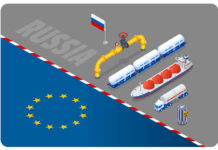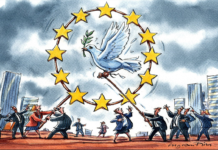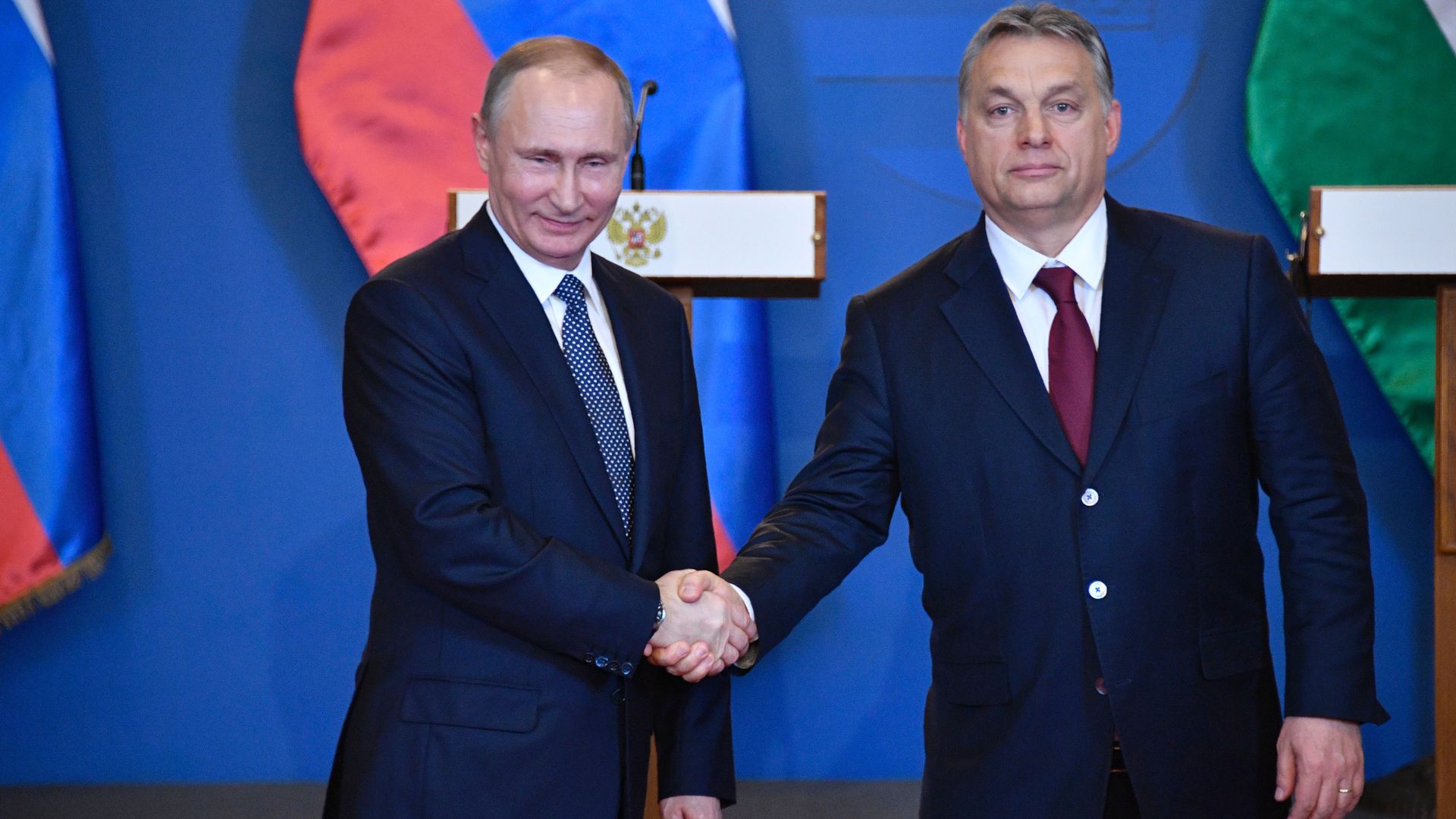The European Citizens Initiative (ECI) is an important mechanism for European citizens in order to address important issues that affect them, by demanding legislative action. At the same time, it may be used in ways in which it was perhaps not intended by its creators. Such could be the case for one ECI, the Minority SafePack Initiative. It is possible that illiberal regimes which target ethnic minorities in other countries, such as Viktor Orban’s Hungary, could make use of the initiative for their own goals and motives. With the public hearing of Minority SafePack in the European Parliament being scheduled on the 15th of October, it would be important to consider those possibilities. As such, let’s take a closer look at what this initiative is and how it can affect the European Union (EU) moving forward.
What is Minority SafePack?
Minority SafePack is an ECI on minority rights within the EU. The ECI is an EU mechanism aimed at increasing direct democracy, the concept of people deciding policy initiatives directly. On the wider, European level, this implies allowing EU citizens to participate directly in the development of EU policies. Introduced with the Treaty of Lisbon in 2007, the European Citizens Initiative enables citizens to directly call on the European Commission to propose a legal act, such as a Directive or Regulation, in an area where Member States have conferred powers onto the EU level. Having this right puts EU citizens on the same level as the European Parliament and the European Council, who are enabled to initiate legislative proposals due to articles found in the Treaty of the Functioning of the European Union. In the citizen’s case, once their initiative has reached the threshold of 1 million signatures, the Commission will decide on what action to take.
Minority SafePack is sponsored by the Federation Union of European Nationalities, most commonly referred to as FUEN. The Federation is the main advocate and the largest umbrella organization of Europe’s autochthonous national minorities, nationalities, and language groups. It should be noted for the purposes of this analysis that currently, and since 2016, the presidium of the Federation is led by a member of the Hungarian minority in Romania, Mr. Loránt Vincze.
The European Commission initially refused to register the initiative when it was proposed in 2013, because it fell outside the legal framework of EU. Due to insufficient argumentation of the decision, the European Court of Justice determined that the decision of the European Commission is to be revised. By 2017, the Commission decided to allow the initiative’s citizens committee to launch the collection of signatures for 9 of the 11 proposals included in the original initiative. Looking at the proposals that were barred, the reason for why the Commission had refused the original initiative became rather clear. The two proposals in question were related to European Council directives, more specifically to revise existing directives on the subject of equal treatment for national minorities, and to construct a new directive which would ensure that the concerns of national minorities would be taken into consideration in the election of the European Parliament. Nevertheless, the proposals that did pass the European Commission’s approval are arguably important as well (see Appendix).
The collection of signatures for the initiative ended successfully in early April 2018, one year after it began. It managed to obtain over 1 million signatures, reaching the necessary Member State associated threshold in 11 countries: Romania, Hungary, Latvia, Spain, Denmark, Slovakia, Croatia, Lithuania, Slovenia, Bulgaria, and Italy.
The dangerous potential of Minority SafePack
Reading between the lines, a particular aspect becomes crystal clear. There is a heavy Hungarian influence looming within this initiative, an influence which could turn the project into a dangerous ethnic tool with the potential of using it for secessionist demands. Taking for example the number of signatures, out of the 1.123.442 valid statements of support, 46% are from Hungary. Putting it differently, a little over 500.000 signatures come from Hungary alone. This figure does not even count the number of signatures that come from ethnic Hungarians living in other countries, such as Romania or Slovakia. In total, ethnic Hungarians represent 75% of the signatures for Minority SafePack. For an initiative that is aimed at representing European citizens as a whole, from very different and heterogeneous geographic and social backgrounds, there is a heavy ethnic Hungarian skewed profile of this initiative. Just through the sheer number of signatures, this project could be publicly labeled as the initiative that seeks the interests of the ethnic Hungarian population in Europe, when it should not play favorites, if it would act according to the principles of an ECI. In effect, it could turn out to entertain the exact principle that it is fighting against, the unequal treatment of the diversified peoples of Europe.
The Hungarian influence within this initiative does not stop there, however. When accounting for the budget of Minority SafePack, a significant portion of it came from the Hungarian government. It could be argued that this amount of public support may have played a role in gaining the most signatures in Hungary, Romania, with its 6% minority representing the largest ethnic Hungarian population outside of Hungary, and Slovakia, whose ethnic Hungarian minority represents a little over 9% of the population. This indicates a strategic interest for Viktor Orban’s Fidesz party in this project. Even during the signature collection period, group leader Gergely Gulyás had insisted that the initiative was symbolic of the principle that each Hungarian has a responsibility for every other Hungarian. Clearly, the Hungarian government sees the initiative as empowering ethnic Hungarians first and foremost. This would make Minority SafePack a political project veiled as a civic initiative, essentially conflicting with the ECI framework, which is meant to be a fundamental civic movement.
What is further worrying is Viktor Orban and Fidesz’s reputations at the European level. Both have been heavily criticized for promoting illiberal ideals in the region by undermining the independence of the judiciary and taking action against the press and NGOs and blatantly disregarding core EU values. While the Hungarian government remains confident and defiant that its actions are not going against democratic principles, conflicts with the EU remain abound. Earlier this month, Orban has asked for Vice President Vera Jourova’s resignation after she declared that Hungary is a sick democracy, whose citizens cannot form an independent opinion. Given Orban’s brazenness in taunting the EU and using unorthodox political strategies, Minority SafePack could be used as an instrument of political power by the Hungarian state, in order to gain influence in neighboring countries where there are sizeable Hungarian minorities, with electoral weight behind them.
Political machinations aside, the provisions themselves hold a dangerous potential in and of themselves. While some of the provisions mentioned in the initiative are apparently of great value, such as the establishment of a Language Diversity Centre, or researching the added social and economic value of minorities, other provisions entail some serious systemic risks for the EU. For example, the regional funding provision and the blocking of exemptions for state aid could create ethnic segregation in terms of fund allocation. Coupled with the primarily Hungarian profile of the supporters, it can be argued that those funds would go in their favor. Another provision that may be worrisome is the one regarding the freedom of reception of audio-visual content. Such a provision could be used as a background for the spread of fake news and propaganda within minority communities. News which come from countries where the government retains a chokehold on the media could be propagated into neighboring Member States. One such country is, unsurprisingly, Hungary. Orban and Fidesz could use the media to further control and influence the Hungarian minorities living abroad.
The secondary hidden influence
Of course, it would be unrealistic to view negative influence and malfeasance just from illiberal regimes within the EU, with regard to this ECI. Besides Hungary, another major actor that may potentially gain a lot from using Minority SafePack to their advantage is Russia. Indeed, the initiative has not only obtained enough signatures in Member States with significant ethnic Hungarian minorities, but also in states with ethnic Russian ones. Take for example Latvia, whose population is composed of roughly 27% ethnic Russians, a country where Russian is pushed by the Russian minority as a second language. Or perhaps one can consider Lithuania, with 6% of its population being of Russian descent. Either way, the scene is set for ethnic Russians to make use of the initiative, encouraged into separatism by an EU Regulation which would override national law concerning minorities.
The potential of this initiative could be further weaponized by Russia within the Member States of the EU where ethnic Russian minorities exist. Using them as leverage, the state can gain more political influence within the European continent, a mission which it had not abandoned even after the resolution of the Cold War, especially after Putin’s rise to power. Already, in the overall strategic context of NATO-Russia relations, the Baltic states represent a region of concern for Washington and Brussels, with regards to Russian intervention. Furthermore, Russia has a demonstrable history in supporting secessionism across Europe, with a relatively recent example being the alleged digital interference it had in the Catalan referendum. If ethnic Russians living in the EU decide that they deserve more recognition, which can be granted by the initiative, the Kremlin can morph and use that message within its strategy to influence national politics in the Baltics and elsewhere, with potentially grave results. This is especially the case when taking into account military tensions in the region and the ominous background of Iskander stationed missiles in the Russian exclave of Kaliningrad, interlocked between Poland and the Baltics.
Concluding remarks
There are clearly some issues with the otherwise interesting initiative of Minority SafePack. It can be viewed as “food for thought” for civil society across the EU, but clearly not for transforming it in an EU legislation, since the protection of minorities is not a legal attribute of the EU, but only for the Member States, under the rule of sovereignty. As a technical remark, the Lisbon EU Treaty clearly notes, in Article 3a, that “The Union shall respect the equality of Member States before the Treaties as well as their national identities, inherent in their fundamental structures, political and constitutional, inclusive of regional and local self-government. It shall respect their essential State functions, including ensuring the territorial integrity of the State, maintaining law and order and safeguarding national security…“.
The faster those problems are considered and addressed, for example during the Public Hearing on the 15th, the better the problem will be solved in the interest of almost 400 million EU citizens, not in the political interest of few some. Should those issues be left unchecked, however, they could be abused if they fall in the right hands. The Public Hearing that will happen in front of the European Parliament will hopefully act as a test for the initiative, rather than a formal acceptance of it. In the case that there are no issues raised during this crucial phase for Minority SafePack, then the bomb set up by illiberal regimes at the foundation of the EU will be ready to blow up sooner rather than later, and the fragmentation of the EU will follow.
Appendix
- An EU recommendation for the protection and the promotion of cultural and linguistic diversity
- Funding programs aimed for small linguistic communities
- Creating a Language Diversity Centre
- Reforming the objectives of the EU’s regional development funds to include the protection of national minorities and the promotion of cultural and linguistic diversity
- Researching and showing the added value of minorities to the European society and the continent as a whole
- Approximating equality for stateless minorities found in Europe
- Creating a singular European copyright law in order for services and broadcasts to be enjoyed in the mother tongue
- Creating freedom of service and reception of audio-visual content in the minority regions of Europe
- Blocking exemption of regional state support for minority culture, media, and heritage conservation

























